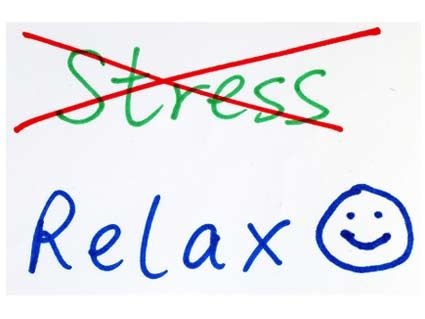1. Avoid Caffeine, Alcohol, and Nicotine.
Avoid, or at least reduce your consumption of, nicotine and all drinks containing caffeine and alcohol. Caffeine, alcohol and nicotine are stimulants and so will increase your level of stress rather than reduce it.
2. Indulge in Physical Activity
When you feel stressed and tense, go for a brisk walk in fresh air. Try to incorporate some physical activity into your daily routine on a regular basis, either before or after work, or at lunchtime. Regular physical activity will also improve the quality of your sleep.
3. Get More Sleep
A lack of sleep is a significant cause of stress. Unfortunately though, stress also interrupts our sleep as thoughts keep whirling through our heads, stopping us from relaxing enough to fall asleep.
4. Try Relaxation Techniques
Each day, try to relax with a stress reduction technique. There are many tried and tested ways to reduce stress so try a few and see what works best for you.
For example, try self-hypnosis which is very easy and can be done anywhere, even at your desk or in the car. One very simple technique is to focus on a word or phrase that has a positive meaning to you. Words such as "calm" "love" and "peace" work well, or you could think of a self-affirming mantra such as “I deserve calm in my life” or “Grant me serenity”. Focus on your chosen word or phrase; if you find your mind has wandered or you become aware of intrusive thoughts entering your mind, simply disregard them and return your focus to the chosen word or phrase. If you find yourself becoming tense again later, simply silently repeat your word or phrase.
5. Talk to Someone
Just talking to someone about how you feel can be helpful. Talking can work by either distracting you from your stressful thoughts or releasing some of the built-up tension by discussing it.
6. Keep a Stress Diary
Keeping a stress diary for a few weeks is an effective stress management tool as it will help you become more aware of the situations which cause you to become stressed.
7. Take Control
Stress can be triggered by a problem that may on the surface seem impossible to solve. Learning how to find solutions to your problems will help you feel more in control thereby lowering your level of stress.
One problem-solving technique involves writing down the problem and coming up with as many possible solutions as you can. Decide on the good and bad points of each one and select the best solution. Write down each step that you need to take as part of the solution: what will be done, how will it be done, when will it be done, who is involved and where will it take place.
8. Manage Your Time
At times, we all feel overburdened by our 'To Do' list and this is a common cause of stress. Accept that you can not do everything at once and start to prioritise and diarise your tasks.
9. Learn to Say ‘No’
A common cause of stress is having too much to do and too little time in which to do it. And yet in this situation, many people will still agree to take on additional responsibility. Learning to say “No” to additional or unimportant requests will help to reduce your level of stress, and may also help you develop more self-confidence.
10. Rest If You Are Ill
If you are feeling unwell, do not feel that you have to carry on regardless. A short spell of rest will enable the body to recover faster.
From: http://www.skillsyouneed.com/ps/stress-tips.html#ixzz3RotLKs7W




